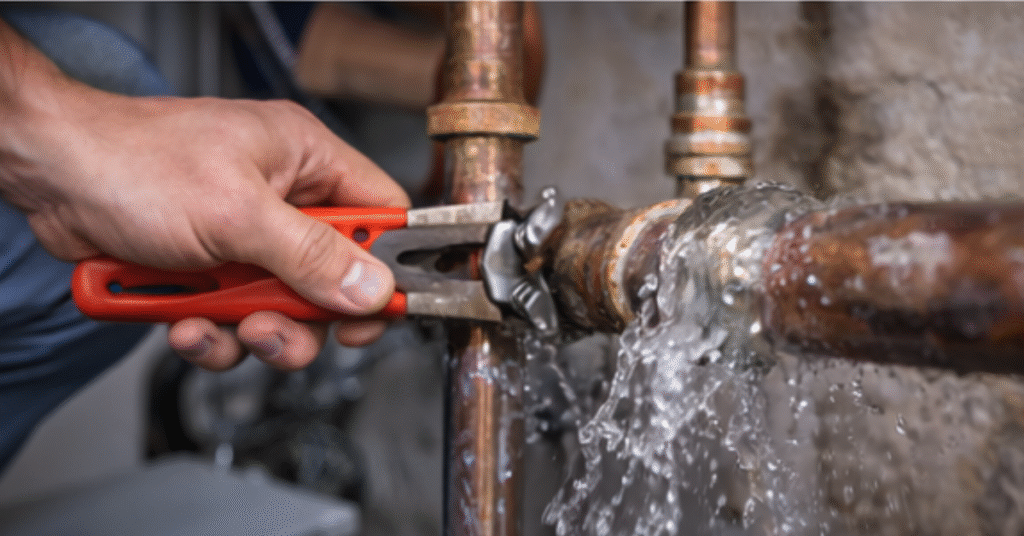
Lynnwood, WA is known for its charming older neighborhoods and mid-century homes — but with that character often comes aging plumbing infrastructure. Whether you’re a new homeowner in Lynnwood or have been living in your house for decades, understanding the risks of outdated plumbing can save you thousands in repairs and water damage.
In this guide, we’ll walk you through what to look for, common problems with older plumbing systems, and what steps you should take to keep your Lynnwood home safe and efficient.
🚨 Why Aging Plumbing Systems Are a Problem in Lynnwood Homes
Older homes in Lynnwood, especially those built before 1980, often used materials that are now outdated, unreliable, or even dangerous.
Common old plumbing materials include:
- Galvanized steel – Prone to corrosion and clogging
- Polybutylene – Known for cracking and chemical reactivity
- Lead pipes – A serious health risk still present in some homes built before 1950
🧪 According to the U.S. Environmental Protection Agency (EPA), even low levels of lead in drinking water can cause health issues, especially in children and pregnant women.
— Source: EPA.gov
🧯 Warning Signs Your Plumbing May Be Outdated
Not sure what your home is hiding behind the walls? Here are key warning signs that your Lynnwood plumbing system may be reaching the end of its lifespan:
- Discolored or rusty water
- Low water pressure
- Frequent pipe leaks or repairs
- Visible corrosion on exposed pipes
- Water with a metallic taste
- Unusual spikes in your water bill
- Clogging and slow drains throughout the home
⚠️ The American Society of Home Inspectors recommends having plumbing systems inspected every 10–15 years, particularly in homes built before 1985.
— Source: ASHI.org
🛠 Common Issues in Lynnwood’s Older Plumbing
Due to Lynnwood’s temperate climate and aging homes, homeowners often face a mix of the following issues:
- Pipe corrosion due to moisture
- Cracked sewer lines from root intrusion
- Undetected slab leaks under the foundation
- Lead solder or fixtures still present in plumbing
These issues not only impact water quality but can also lead to serious water damage or mold growth, especially during wetter months.
🔍 How to Know What Pipes You Have in Your Lynnwood Home
You can perform a quick DIY inspection of your visible plumbing, but it’s not always easy to tell pipe types without experience.
Here’s a simple visual guide:
- Galvanized steel: Gray/silver, magnetic, threaded ends
- Copper: Reddish-brown or green-tinged if oxidized
- Polybutylene: Often blue, gray, or black plastic; flexible
If you’re unsure, a professional plumbing inspection can identify your entire system and check for code violations or future risks.
🧰 What Should Lynnwood Homeowners Do?
1. Schedule a Plumbing Inspection
Even if you haven’t noticed issues, a thorough inspection can catch early signs of deterioration before costly damage occurs.
2. Replace Problematic Pipes
If your home still has galvanized, lead, or polybutylene pipes, replacing them with PEX or copper is a smart investment for safety and resale value.
3. Upgrade Fixtures and Shut-Off Valves
Modern fixtures and shut-off valves are more efficient and easier to maintain.
4. Test for Lead or Contaminants
Consider testing your water with an EPA-certified lab to ensure safe drinking water.
📌 Important: Homes built before 1986 are at higher risk of lead leaching from pipes and fixtures.
— Source: CDC.gov
💡 Final Thoughts
Old plumbing doesn’t have to be a disaster waiting to happen. If you live in an older Lynnwood home, take the time to understand your plumbing system and invest in updates where needed. The cost of proactive replacement is far less than repairing water damage from a burst pipe or dealing with health issues from contaminated water.
✅ Need a Plumbing Inspection in Lynnwood? Trust Einstein Pros!
Don’t wait for disaster to strike. Contact Einstein Pros Lynnwood Plumbing Services for trusted, professional help in assessing and updating your home’s plumbing system.
